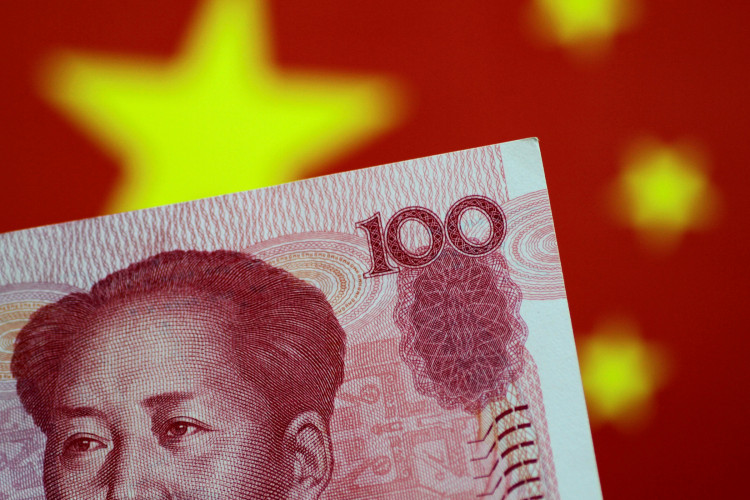China's financial markets reeled on Wednesday following Donald Trump's victory in the U.S. presidential election, as the yuan weakened significantly and major stock indices slid. Trump's return to the White House, coupled with Republican control of Congress, has intensified fears of a fresh wave of trade and technology tensions between the world's two largest economies, raising concerns among global investors.
The offshore yuan at one point plummeted by over 900 basis points against the U.S. dollar, dipping below the 7.19 mark before recovering slightly. Onshore, the currency mirrored these declines, falling by more than 0.8%. China's blue-chip CSI 300 Index lost 0.5%, while Hong Kong's Hang Seng Index, a key barometer for foreign investor sentiment, plunged by 2.3%. Tech giants JD.com and Alibaba were among the biggest losers, each shedding 4%.
"Markets are reacting to the likelihood of heightened U.S.-China friction, with tariffs being an immediate concern," said Rong Ren Goh, a portfolio manager at Eastspring Investments. Trump's campaign promises to impose tariffs of 60% or more on Chinese imports have reignited fears of further economic decoupling. Goh warned of additional measures that could include sanctions on Chinese companies and restrictions on access to critical technologies.
The economic ramifications extend beyond tariffs. Analysts suggest that a Trump administration could put significant pressure on China's already fragile economy. Beijing has been grappling with a prolonged real estate downturn, mounting local government debt, and subdued consumer spending. A more protectionist U.S. stance, accompanied by sanctions and trade barriers, threatens to exacerbate these vulnerabilities.
"The stronger-for-longer U.S. dollar, coupled with high U.S. interest rates, could sustain a wide interest rate differential between the U.S. and China," said Nick Marro, principal economist for Asia at the Economist Intelligence Unit. This could deepen depreciatory pressures on the yuan, he added, particularly as Chinese monetary policies remain accommodative.
Despite Beijing's efforts to stabilize the yuan, including state-owned banks selling dollars to slow the currency's decline, market sentiment remains shaky. The yuan's current weakness recalls its performance during Trump's first presidency, when trade tensions triggered significant depreciation. Back then, the yuan fell approximately 5% against the dollar during the initial tariff rounds in 2018 and weakened further in subsequent years as tensions escalated.
China's equity market, which had shown signs of recovery in recent months thanks to government stimulus measures, now faces renewed uncertainty. The CSI 300 index had risen by more than 20% since late September as Beijing rolled out rate cuts and support for the real estate and consumption sectors. However, the prospect of heightened trade restrictions and geopolitical volatility under Trump could undercut these gains, particularly for technology, defense, and export-oriented sectors.
"The market response reflects broader concerns about the potential for U.S.-China relations to worsen," said Kenny Ng, strategist at China Everbright Securities International. "While both U.S. political parties have shown hawkish tendencies toward China, Trump's unpredictable approach still drags on investor sentiment."
For now, Chinese onshore markets are focusing on the ongoing meeting of the Standing Committee of China's National People's Congress, which runs through November 8. Investors are holding out hope for additional stimulus measures, which could help offset some of the negative impacts stemming from the U.S. election outcome.





